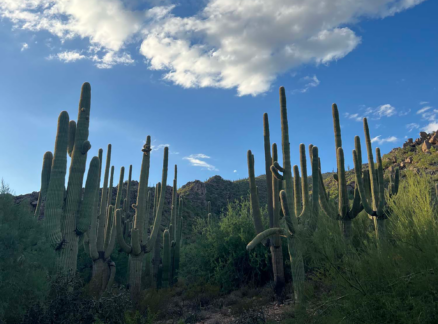May 1, 2007
Palm Woven
A plywood made from coconut palms makes use of the trees at the end of their agricultural life cycle.
For farmers in Southeast Asia and the Philippines, the coconut palm is a good investment: not only is the fleshy nut edible, but its various parts can be processed into milk, cooking oil, livestock feed, and even sports drinks. Unfortunately, the tree has a soft pulpy center that makes it a poor choice for lumber—as coconut palms age and their production slows, farmers typically slash and burn to make way for younger, more profitable trees.
But for several years now, San Francisco–based manufacturer Smith & Fong has been buying coconut-palm timber directly from farmers in Southeast Asia and applying a manufacturing process similar to one they developed for bamboo: flat strips are milled out of the lumber’s harder perimeter and
then sliced, kiln-dried, and laminated into a sturdy plywood called Durapalm. “It’s an elaborate process that we’ve developed over the years to stabilize the wood and render it in a useful form,” says Dan Smith, the company’s president.
Its latest form, Palm Woven, debuts at the International Contemporary Furniture Fair this month—just as palm wood seems poised for wider use by interior designers. “A lot of the environmental woods tend to be in the blond family, so the fact that this has a rich, exotic look makes it unique,” says Robin Reigi, whose New York City showroom (www.robin-reigi.com) distributes Durapalm. And while palm is more expensive than bamboo, it is still significantly more affordable than exotic woods such as wengé. Besides, since 70 to 80 percent of coconut palms are managed by small farmers, that extra money is supporting local industry as well as the environment.
**
Composition:
6-by-36-inch panels of 3/8-inch-thick palm wood milled in a woven pattern
Properties:
Durable, easy to assemble (the panels snap together with finger joints), low-VOC-emitting, and eligible for up to four points toward LEED certification
Applications:
A textured wall treatment for hospitality, residential, and contract interiors, Palm Woven can also be placed beneath glass for a decorative tabletop.
Manufacturer
Smith & Fong Company
375 Oyster Point Blvd., #3
San Francisco, CA 94080
(866) 835-9859





